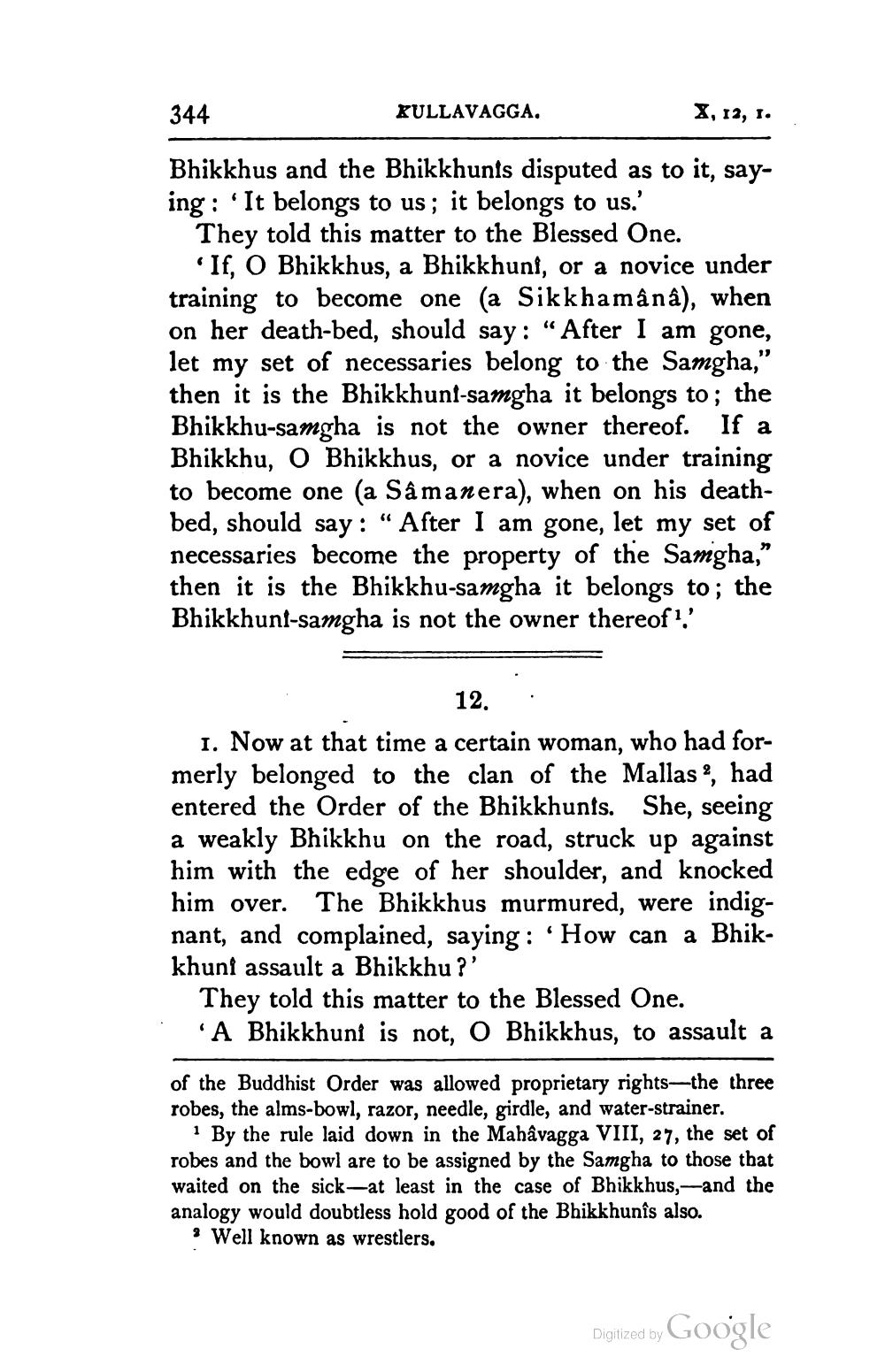________________
344
KULLAVAGGA.
X, 12, 1.
Bhikkhus and the Bhikkhunts disputed as to it, saying : It belongs to us; it belongs to us.' They told this matter to the Blessed One.
If, O Bhikkhus, a Bhikkhuni, or a novice under training to become one (a Sikkhamânâ), when on her death-bed, should say: "After I am gone, let my set of necessaries belong to the Samgha," then it is the Bhikkhunt-samgha it belongs to; the Bhikkhu-samgha is not the owner thereof. If a Bhikkhu, O Bhikkhus, or a novice under training to become one (a Sâmanera), when on his deathbed, should say: “After I am gone, let my set of necessaries become the property of the Samgha," then it is the Bhikkhu-samgha it belongs to; the Bhikkhuni-samgha is not the owner thereof.'
12. . 1. Now at that time a certain woman, who had formerly belonged to the clan of the Mallas ?, had entered the Order of the Bhikkhunts. She, seeing a weakly Bhikkhu on the road, struck up against him with the edge of her shoulder, and knocked him over. The Bhikkhus murmured, were indignant, and complained, saying: How can a Bhikkhuni assault a Bhikkhu ?'
They told this matter to the Blessed One. 'A Bhikkhuni is not, O Bhikkhus, to assault a
of the Buddhist Order was allowed proprietary rights—the three robes, the alms-bowl, razor, needle, girdle, and water-strainer.
By the rule laid down in the Mahâvagga VIII, 27, the set of robes and the bowl are to be assigned by the Samgha to those that waited on the sick—at least in the case of Bhikkhus,-and the analogy would doubtless hold good of the Bhikkhunîs also.
9 Well known as wrestlers.
Digitized by
Digitized by Google




